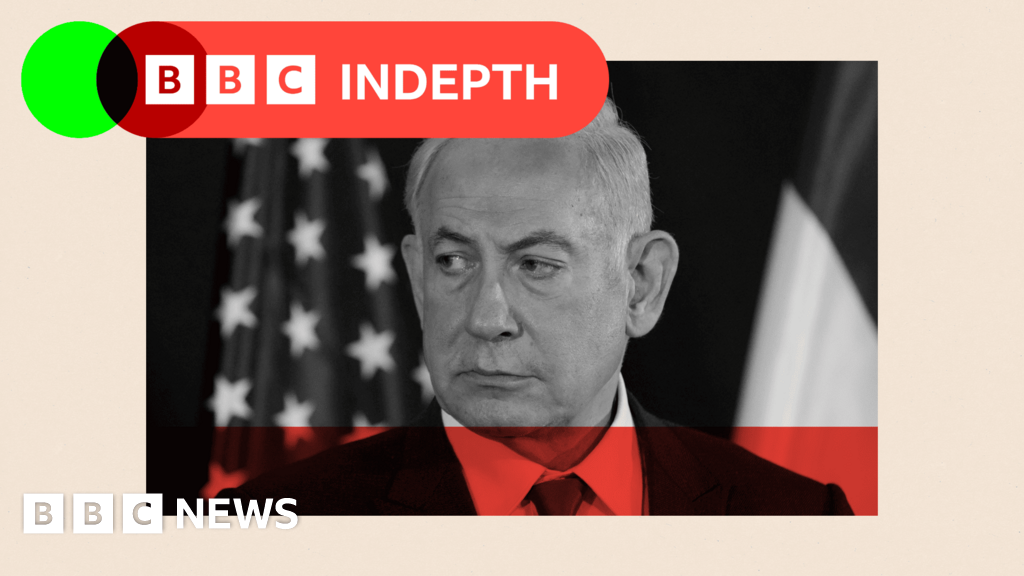Getty ImagesIsraeli’s ground invasion in Lebanon is about end its second week. Israel’s war already entered its second-year. A new offensive in Jabalia is underway in northern Gaza despite calls for the conflict to end. Israel’s allies also urge restraint, as the country prepares for retaliation against Iran following last week’s missile attack. However, Israel will continue its own path and resist this press because of three factors: the 7 October, Benjamin Netanyahu, and the United States. It was in January 2020 that Iranian general Qassem Solimani landed in Baghdad on a night flight from Damascus. Soleimani, who was the head of Iran’s notorious Quds force, an elite clandestine unit within the Iranian Revolutionary Guards Corps, was responsible for funding, arming and directing proxy troops abroad in Iraq and Lebanon. The group, whose name meant Jerusalem, was Israel’s main adversary. As Soleimani left the airport his convoy was destroyed by missiles fired by a drone, which killed him instantly. Getty ImagesAlthough Israel had provided intelligence to locate its arch-adversary but the drone was owned by the United States. The order to kill Soleimani was given by the then US President Donald Trump and not by Israeli Prime Minister Benjamin Netanyahu. “I never forget Bibi Netanyahu let us [down],” former President Trump said in a later speech. Trump said in a separate interview that he expected Israel to take a more active part in the attack, and that Netanyahu was “willing” to fight Iran until the last American soldier. While Trump’s version of events is disputed, it was believed at the time that Netanyahu, who praised this killing, was worried that direct Israeli involvement would provoke a large scale attack against Israel from either Iran directly or its proxies, in Lebanon and Palestinian Territories. Israel was engaged in a shadow conflict with Iran. Both sides were careful to limit the fighting to avoid provoking each other into a larger conflict. According to Bob Woodward’s new book, the US president reportedly swore at him. He was outraged that Israel’s Prime Minister was willing to escalate a conflict that the White House was trying to end for months. The US has been trying for a ceasefire agreement. What is the reason for its failure? Middle East conflict: how will it end? What could happen next in terms of conflict in the Middle East. The 10 experts give their analysis. The apparent inability of the US superpower to influence the largest recipient of US assistance is confusing for America’s critics. Netanyahu, Israel’s longest serving prime minister, has learned that US pressure can be resisted, if not ignored. He has more than 20 years’ experience. Netanyahu knows that the US, particularly in an election year, will not take action that forces him to divert from his chosen course (and believes, in any event, that he is fighting America’s enemies too).Different calculationEspecially when it comes to the latest escalation, it would be wrong to assume that Netanayhu is operating outside the Israeli political mainstream. The pressure is on him to strike harder at Hezbollah and Iran. The US and France proposed a ceasefire in Lebanon last month. The opposition, the main left-wing Israeli grouping, and right-wing parties all criticised the proposed 21-day peace. Hezbollah’s stated goal to invade northern Israel’s Galilee has been known for years. Since the Israeli public has seen gunmen infiltrating into homes, this threat cannot be contained and must be removed. Israel’s perception of risks has also changed. Long-held notions about military red lines in this region have disappeared. In the last year, several acts were committed that could have, until recently led to an all out conflict, raining down bombs and missiles upon Tehran, Beirut Tel Aviv, and Jerusalem. Israel has assassinated Hassan Nasrallah, the entire leadership of Hezbollah and senior Iranian officials in diplomatic buildings in Syria. Hezbollah fired over 9,000 missiles, drones, and rockets at Israeli cities including ballistic missiles that hit Tel Aviv. The Houthis, backed by Iran in Yemen, have also launched large rockets at Israel’s major cities. These missiles were intercepted as they reentered Earth’s atmosphere over central Israel. Iran has launched two attacks on Israel in the last six months, involving more 500 drones and rockets. Israel has invaded Lebanon. Any one of these could have, in the past sparked a regional conflict. The fact that it hasn’t will change how a normally cautious and risk-averse Israeli Prime Minister decides his next move. BBC InDepth, the new home for our best journalists and their analysis and expertise on the website and the app. We’ll provide you with fresh perspectives on issues that are important to you, as well as deep reporting about the most pressing ones. We’ll also be showcasing some of the most thought-provoking content on BBC Sounds and iPlayer. We’re starting small but thinking big, and we want to know what you think – you can send us your feedback by clicking on the button below.IsraelHezbollahLebanonHamasDonald TrumpBenjamin Netanyahu
Read More @ www.bbc.com













